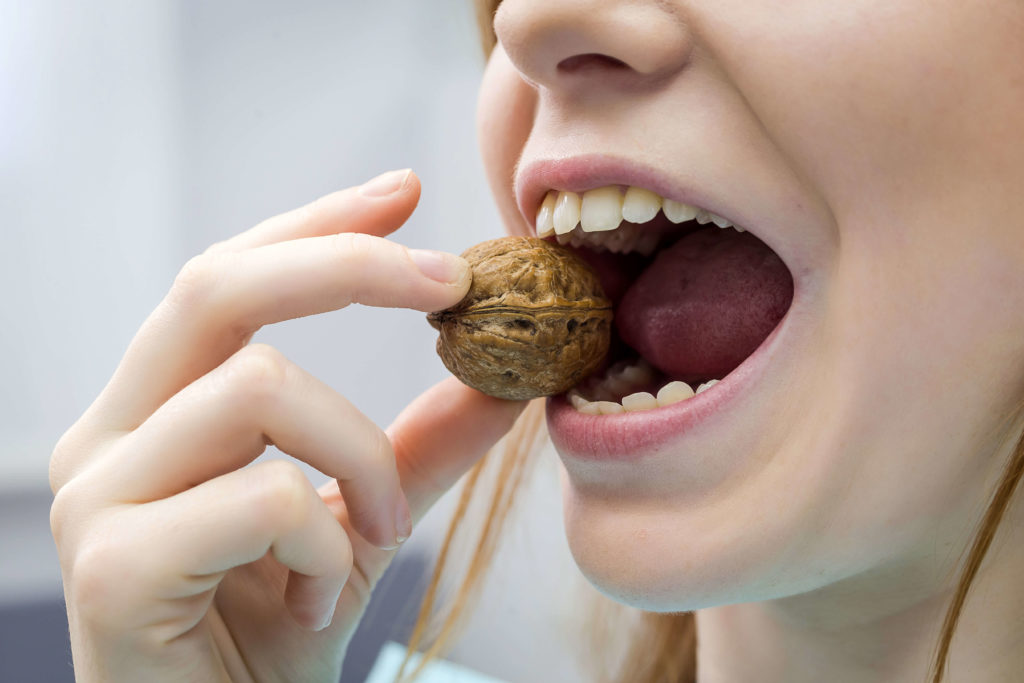What Causes Cracks in Teeth?

There are several causes which can create a hairline fracture or a larger fracture in a tooth. In many cases, more than one of the following events have occurred, and perhaps, multiple times over a period of years:
- Biting and chewing on hard food, ice, and objects
- Grinding and clenching your teeth
- Uneven chewing pressure
- Upper and lower teeth interfering with each other
- Normal chewing forces if the tooth structure has been previously weakened, for example, it has a large cavity or large filling
Other causes are:
- An accidental blow to a tooth
- Exposure to temperature extremes (for example, eating frozen food and then drinking a hot beverage)
Cracks in tooth enamel are often vertical and so fine that patients do not notice them. You may have a hairline fracture that is not visible to the naked eye. It may not even show up on an x-ray. Unless there is associated pain, you may never become aware of it.
Even if you do not observe cracks, your Smile Design Dentistry team care team is trained to look for them. With today’s technology, we can show you enhanced digital images of individual teeth, and these images will allow you to understand the condition of your teeth and help us track future changes.
Cracks can weaken a tooth and make it more susceptible to breakage, sensitivity, staining, dental caries and pulp infection. Large cracks may need urgent treatment to avoid or eliminate dental pain and more significant tooth damage.
Hairline cracks may not require treatment if no discomfort is associated with them. But, keep in mind that hairline cracks are one of the signs of occlusal problems that are likely to produce more and larger cracks in the future.
Most people grind their teeth together while they sleep. This unconscious behavior is called “bruxism.” Many people brux intermittently during the night, while other people brux for only a few minutes. When people are stressed, bruxing and clenching increases. These two behaviors apply occlusal forces that wear down enamel on the biting surfaces of teeth and often cause fine line fractures to develop. Many patients experience jaw and facial muscle tenderness, which is a sign of bruxism or clenching. Wear on teeth and jaw joints accelerates the need for dental restorations and other therapeutic treatments.
A custom occlusal nightguard will provide relief for jaw and facial muscle tension associated with grinding and clenching. A custom nightguard is very comfortable to wear and will effectively protect your teeth from significant wear and tear. This affordable preventive treatment is also therapeutic if you experience jaw and facial muscle tension.
Your Smile Design Dentistry dentist will explain the benefits of wearing a nightguard while you sleep if your teeth have signs of bruxism, you are aware you grind your teeth, or you are experiencing associated muscle tenderness.
Smile Design Dentistry welcomes new patients. Should you have a concern about a cracked tooth or any other oral health care needs, give us a call today or stop by the Smile Design Dentistry location near you to schedule an appointment.
